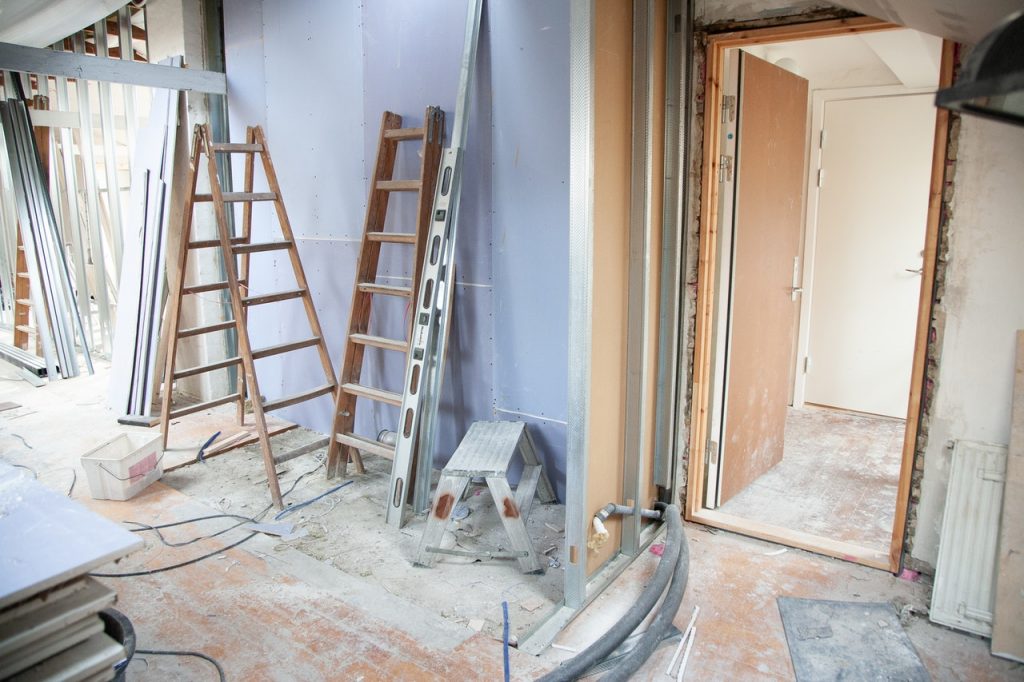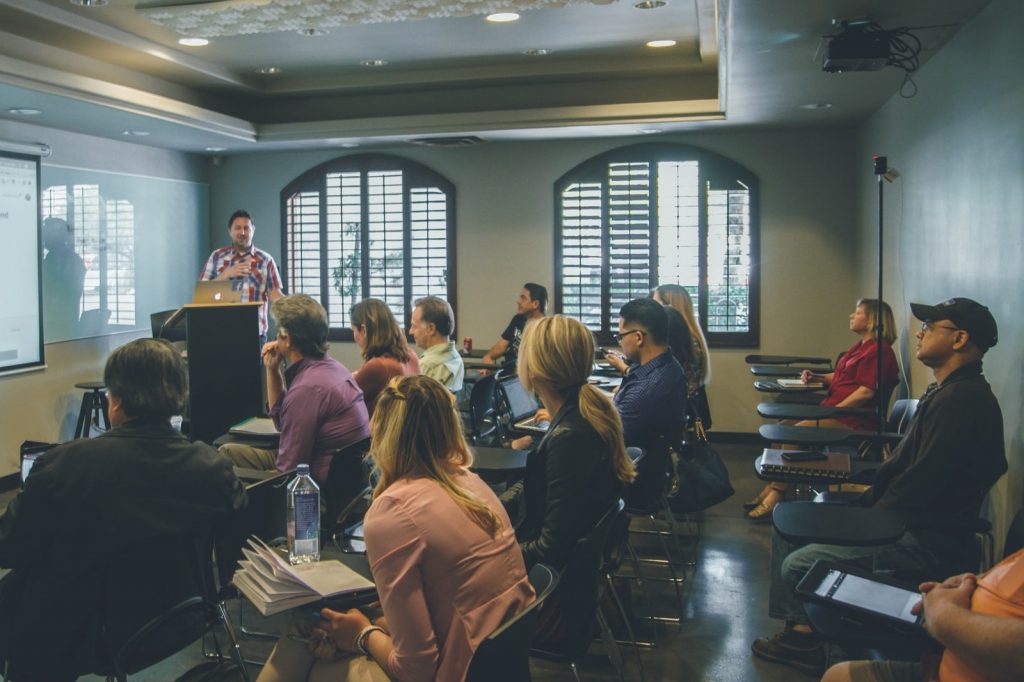- Dario’s unique experience with acquisition entrepreneurship
- How Dario feels about his experience with Acquira
- How he forged his own part independent of a partnership with Acquira
- The mistakes he made as an AE and what he learned from them
We talked to Dario who is an acquisition entrepreneur on the path to closing his first business purchase.
Despite the fact that he has a demanding day job, he’s willing to pursue his dream of becoming an entrepreneur by acquiring a business. In this interview, Dario reveals how he navigated the complexities of venturing on his own after taking Acquira’s acceleration program.
Let’s dive right in!
First, tell me about your background, and how you came to want to buy a business
My background is partly as a business consultant. I worked on a lot of software development. Not a coder myself, but I understand business requirements and I’m the link between business and the technical team. I did that for many years. And then in the last six or eight years, I started working for corporate America primarily in the role of a product manager.
I always wanted to be an entrepreneur. I always wanted to start a company. But when I was younger, I thought I should get some experience first. That's why I went and did all this consulting work. And then I also got married and have four kids. So, starting a business from scratch is kind of daunting. I thought with the money that I have saved, I could potentially buy an existing business and then kind of build it up. It would probably be easier, less risky, and I would still be able to be an owner of a business.
About the business that you're buying, where is it? What is it? And how did you find it?

The business is a home remodeling business. They do primarily kitchen and bathroom remodels, and also some roofing. They also do additional smaller projects, but it's not much. It is located in Philadelphia, Pennsylvania, which is probably one of the biggest perks in the sense of having to commute back and forth.
One of the reasons, probably the reason I like the business the most, is because the business has a strong focus on marketing and sales. And so, given my background in managing e-commerce and digital marketing, I thought I could leverage my skill set and experiences to make the marketing aspects a little more technological.
Currently, the business does traditional marketing, for example, fliers because they cater primarily to senior citizens. They also do TV advertisements. And so I thought I'm starting from a good base and I wouldn't change anything in the works. But I would. What I would do is add an additional type of marketing and convert it into a more digital business.
Philadelphia is on the opposite side of the country. What's that going to look like for you?
What I envision in the first 3-6 months is to travel as much as I can. So for the first couple of months, I'll be there for a couple of weeks and come back and do a long weekend. If I remember, Kylon is doing something similar. I heard from one of the Mastermind calls that we had together a few weeks ago.
So I'll probably do that for a couple of months. The hope is for me to scale down traveling and maybe go every other week for the foreseeable future. In the meantime, the thought is to have a person to handle the operations aspect; to be on site. Before making changes, I want to really sit with the business for at least 3-6 months.
One idea is to have a vice president who will be in charge of all sales aspects. The business has a team of five sales reps, so this individual will be responsible for the sales reps and also hiring and training additional ones, as well as an individual who kind of coordinates all the subcontractors to make sure that the jobs are installed and customers are happy.
And so, in my view, this ops leader could oversee that aspect as well. And I would focus more on the marketing aspects of the business. That's what I have in mind. But obviously 3-6 months in, I may change my mind.
How do your wife and kids feel about it?
My kids are still young, so they do not really know anything about it. But my wife, she's obviously a bit anxious. But all of this will probably turn out for the best.
And if we need to make some sacrifices for a few months, but then have a business that has the potential to grow in Philadelphia and potentially expand in other regions, maybe it will be worth it. But that can be a hot topic of conversation pretty much every day in the last 4 or 5 months.
So, you’re not having Acquira come in as an equity partner. You just utilized the training and support through masterminds. Correct?
Yes. I also went through the investment committee.
What was your thought process going through the training and finding a business? What was the biggest thing you learned or stood out to you through that whole process?

Ok, so the Gauntlet was very helpful. It felt like a very condensed MBA that you do in a week and it's very tailored toward small businesses. Then, I did the Acceleration Program (AP) 1 and 2. And for me, I don't remember exactly, but I found some of that information helpful. Like how to browse BizBuySell, there were things around calculators, and how to find your best combo of industry and location.
What I did find super helpful are the mastermind calls, especially since Daniel took over. I think he did an amazing job. He brought all these good speakers. There were two or three meetings where they went through what the expectations are and how getting a loan works. That was super, super helpful.
I did not really know anything about SBA and SBA loans before I started the program. And so going through those training with the SBA lenders was super helpful. There was a call regarding entity selection from Deven, if I remember correctly, that opens a lot of opportunities on my end. I think that's super helpful.
The training regarding the quality of earnings was interesting. I think it can go into a little more detail. There was some training with some brokers about what goes on between LOI and APA. That was really helpful too.
Did you find a business prior to the training or not? Talk us through your process.
I was looking at businesses to buy before taking the Gauntlet. Because of my background, I was primarily looking for software businesses. But I was not finding good software businesses, at least for what I could afford, right? And I was trying to understand if there were investors that I could bring in and whatnot.
And then I came across Acquira. I remember the first touchpoint was a podcast that Kylon was invited to. I honestly don't remember what it was, but he talked more about traditional offline business and how you have the opportunity to build lots of marketing and digital marketing around it. And that's how I got more serious about buying a business. Then I started looking at businesses primarily on BizBuySell.
I looked through a lot of businesses. All the guys that you guys had were people who looked at 20-30 businesses but I looked through probably 200-300 businesses. And part of that problem was me not knowing the type of business I wanted to buy. Because I didn't know how I could add value to most of the businesses that we were looking at.
I started looking for a software development company, which is what I've been doing for a long time and so it felt like a very good fit. I know it was not part of the type of businesses that you guys acquire. And so I went ahead and did lots of tough negotiations with the seller. And unfortunately, that LOI failed.
Do you know why?
It's probably because the seller was not really ready to sell. I think he wanted to sell if all conditions were in his favor. And there was one condition that I had to say no on.
The condition was around me doing due diligence and really looking at all the details of the Google ads, Facebook ads, advertisements. I wanted to hire a specialist to assess the Google Ads strategy of the seller but he didn’t want me to have access to his Google Ads password.
It was a software company that heavily depended on Google Ads, so it was weird that he wouldn’t grant access. Right?
Yes. That's why I'm saying the seller was not ready. He was concerned that if I had access to all the keywords and amount of money spent on the keywords because I've been doing this work for a long time, the next day I could invest $120,000 on Google Ads and just build a competing business. So we were not able to find an agreement on that, and I decided to walk away.
That was a huge learning experience because I knew everything until LOI. But I did not know how to handle everything after the LOI. I mean, obviously, I did some weeding around before, but I did not know what to expect. Right? And so it was super informative to go through that process once.
I think there were a few key learnings from that. One key learning is I was resistant to spending money with vendors. On the legal side, I did not need a lawyer to tell me what to do because I know what to do. Right?
Despite the fact that I went through the program and heard from you guys and I did research, I figured if I'm going to pay money to a lawyer, it’ll be just when we are close to signing the deal so that you can tell me I'm not doing anything wrong. Because the thought process is if it's all my money with the same lawyers and vendors that I don't have money to put down for the business.
And so what that implied was that I was having really intense conversations with the seller face to face because we were renegotiating parts of the deal. There were no intermediaries.
The seller had a broker. Obviously, the seller had more money in it than I did. One of the mistakes that I did with the lender for the SBA loan was I used a preferred lender of the broker. And it turned out the broker and the lender were pals. And if I said something to the lender in confidence, after about 10 minutes, the broker knew about it.
Any negotiation strategy or any type of information, it seemed that just as I was trying to inform myself on some of the terms the lender was dictating to me, it kind of went to the broker first and then to me later. I found myself having to deal with the large team that was supporting more of the seller than they were supporting me. And so I learned that if I am crazy enough to do this again with another LOI, I will hire a lawyer. So that was one big lesson learned.

Yeah, I just remembered the other lessons learned that I wanted to bring up, which is around the valuation. I honestly don't remember how much of this information is available or not available in the AP training, but first of all, I was naive enough to actually believe the broker. In the information that was contained in the prospectus, you know, the confidentiality agreement, they shared with me the financials for the previous 3-4 years.
I did my calculations to come up with what I thought an SDE could be on the financial data by the broker partner. After we sent the LOI and started doing the financial due diligence. And I actually saw the tax returns like, “Oops!”
And then the SBA lender told me, “You don't only look at past financials. The lender will only look at the tax returns for SDE analysis.” And that was a big, big learning. Because obviously, the broker wants to show a very high SDE. And then you go and look at the tax returns and the actual seller discretionary earnings. So, I found myself having provided a very high bid. But then the SDE was a lot lower than I thought, right? And that was the start of making the whole transaction fail.
I told the broker, “You give me the last four years of tax returns first, and then I can submit an LOI.” What I did was base my own valuation and assessment of SDE on 2018-2020 tax returns. And then I looked at the partial 2021 P+L and I gave a lower weight. But by doing that, I saved myself a lot of headaches.
So, where are you in the process with this Philadelphia company?
We are discussing the final details of the APA. The due diligence is complete, the lender has approved the financing, the SBA has authorized the guarantee via a handful of bureaucratic things such as getting life insurance and all this stuff.
And I put a few contingencies in the APA, I cleared a couple of them but there are a couple of them still to go. I did a customer survey to ascertain how happy or unhappy the customers were. It came back worse than I thought. Now I'm trying to renegotiate one loss on the seller’s note. I'm trying to get part of the not forgivable if we do not achieve certain revenue numbers by the first year.
Is the seller staying involved for a certain amount of time or
He is staying for one year. The first six months will be pretty much hands-on and then following from six months is going to be more of answering questions.
Do you have a closing date?
It was September 15th. The new closing date is Friday next week, so. I think it's very unrealistic because we still have some ancillary documents. And I still have my last contingency, which is in-person interviews with the key staff members. So closing next week is next to impossible.
But I'm hoping that we can resolve the problems on the promissory note and try to flush out a couple of more details.
Are you still working?
Yes.
How has that been?
It's definitely challenging to work and acquire a business at the same time. If you're just searching for businesses and you're doing some self-analysis, it's totally doable.
If you are in the middle of the diligence, it's very difficult. And I try to comb it as much as I could. But because I have a pretty demanding day job, so doing due diligence is pretty intense.
I took some time off and we went for a summer vacation. My wife beat me for that because while the kids were in the pool and she was in the pool with the kids, I was in the hotel room. That was how I was able to manage the hardest part.
The most time-consuming part of the due diligence was writing the business plan for the lender. And so you kind of have to juggle things around a bit.
How are you feeling about stepping into an old business?
It's definitely stressful because one, the distance, and two, I'll be doing something I had never done in my life. I know absolutely nothing about construction or kitchens. So there will be a very steep learning curve for that.
And that's really around the technical aspects. There's another aspect that is more of relationship building. Most of the people working in this business are in their 60s and 70s. They are very reliant on pen, paper, and faxes. And I need to make sure that I do not create frustrations on my willingness to modernize and to make the business more digital.
That's honestly a bigger concern than just learning more about the construction aspects. It is more about becoming a leader of these folks who know everything about a business that I want.
And then the last one, which is still on the back of my head as a hyper cynical person; I am always thinking, what if I'm just buying a lemon? And a couple of months from now, I am on the streets?
If, like Dario, you’d love to leverage Acquira’s training and community to forge your own independent acquisition entrepreneur path, talk to a member of our team for guidance. We can provide the education and support to make sure you feel confident in your acquisition.
Acquira specializes in seamless business succession and acquisition. We guide entrepreneurs in acquiring businesses and investing in their growth and success. Our focus is on creating a lasting, positive impact for owners, employees, and the community through each transition.



